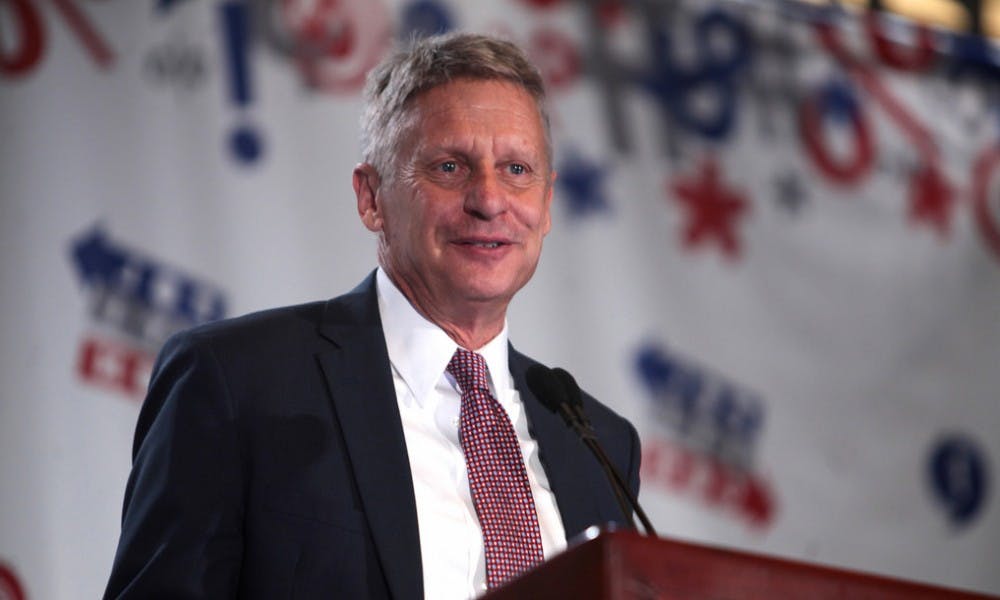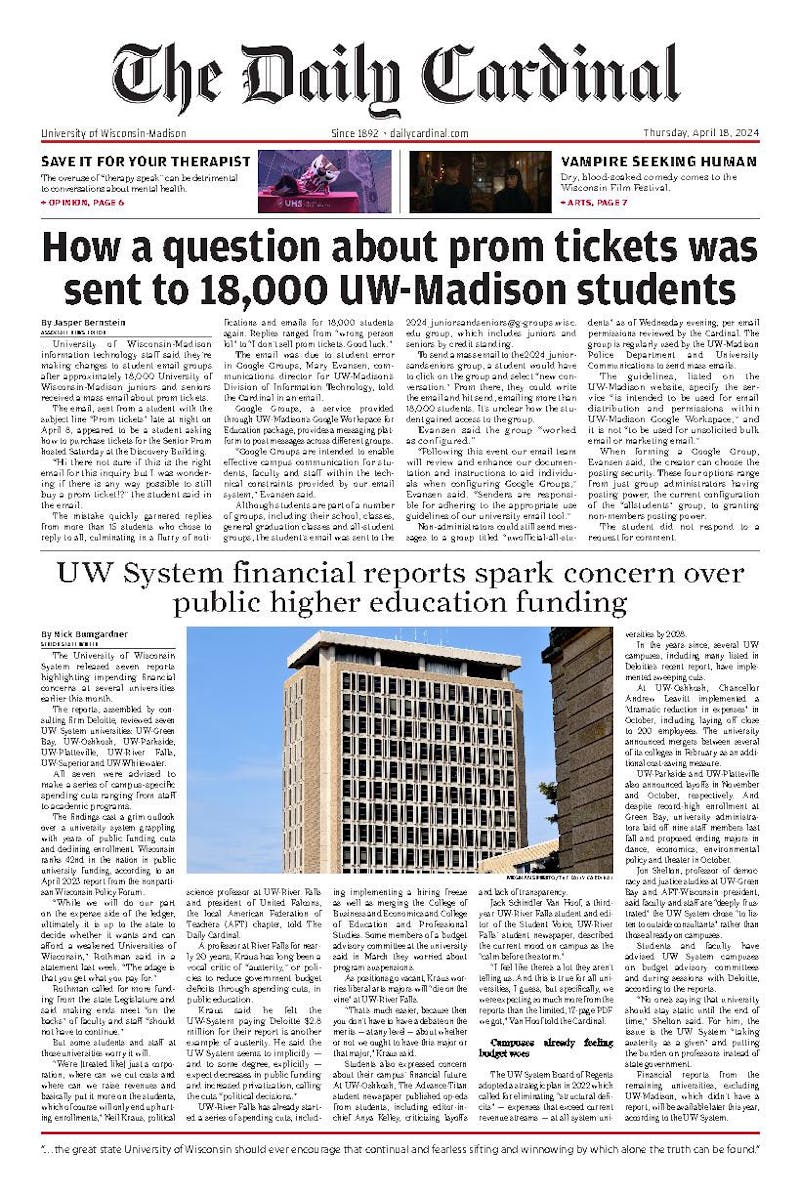As an ardent and vocal environmentalist, I have always been drawn to the ideas and candidates espoused by the Green Party. In 2014, I cast some of my very first votes for Green Party candidates, in the hopes of seeing environmental stewardship come to the forefront of local politics.
This election year, however, my environmental streak will take a backseat. Despite the flaws of the two-party system in the United States—and there are plenty—the way to introduce new ideas from other parties is to do so gradually. The stakes are far too high this year, and the impact of “protest votes” could decide the fate of our country.
Those who clamor for an alternative to Hillary Clinton and Donald Trump have a right to do so. The extremely low popularity ratings of the two candidates are unprecedented, and have opened the door for Jill Stein and Gary Johnson, of the Green and Libertarian Parties respectively, to earn more votes than usual.
The need for fresh, new ideas in the political sphere cannot be understated—and is a big reason for Bernie Sanders’ remarkable rise in the Democratic primary nomination process. Sanders’ impact on politics will linger for years to come, and the voices of those who believe in ideas other than those put forth by the two predominant parties will only grow louder.
Despite the clear need to introduce new parties into our system, this year is not the year to do so. Though the two candidates put forth by the Democratic and Republican Parties are unappealing to many, the impact that so-called “protest votes” could have is unparalleled. The election of Trump would usher in a new age of fear, xenophobic nationalism and instability in the United States. Much of the fault for the consequences of his presidency would fall on the shoulders of those who voted for huge underdog candidates, rather than the only person with a real chance of stopping him.
An abnormally popular Green Party candidate, Ralph Nader, won a significant number of votes in the 2000 election, aiding George W. Bush to win the presidency over Al Gore. The ironic thing about that outcome was that many Nader supporters—who sought to effect environmental change—would have benefited far more from a Gore presidency than a Bush presidency. Gore’s environmental views, as articulated in “An Inconvenient Truth,” coincide with the views of many Green Party voters.
While Bush benefitted from Nader’s popularity, his presidency was hardly as disastrous as a Trump presidency would be. Though Bush made several errors, his temperament and qualifications for the job were unquestioned. Trump, on the other hand, lacks the experience, level-headedness and grace that the job requires. If Stein or Johnson receive enough votes to tip the election in Trump’s favor, third-party supporters may very well end up regretting their decision.
Third parties also lack the foundation necessary to earn the presidency. Of the 535 current members of Congress, only two belong to neither the Democratic nor Republican Parties: Sanders and Angus King, I-Maine. In order to gain popularity and credibility, third parties need to build up from the bottom, rather than try to topple the two-party system in a general election.
If the Green and Libertarian Parties (as well as their various counterparts) want a shot at electing a president, they need to first send officials to state and national legislatures to prove that their ideas work when put to the test.
When Theodore Roosevelt failed to capture the Republican Party nomination in 1912, he helped found the Progressive (or “Bull Moose”) Party to oppose the Democratic and Republican Parties. Despite the widespread popularity of their candidate, the Progressives were soundly defeated by Woodrow Wilson and the Democrats, and withered away soon thereafter. This shows the difficulty that third parties—even those with highly beloved candidates—can have in altering the two-party system.
Candidates for president from the Green or Libertarian Party are valuable in their ability to expose people to new ideas, but these parties and their voters need to understand that in order to truly challenge the order of politics in the United States, they need to build up, rather than attempt a Hail Mary every four years. By putting forth likable, hard-working candidates at the state and local levels, the parties could more effectively spread their messages and convert disillusioned Americans.
Alternative parties should play a larger role in politics than they currently do. No one in their right mind would believe that having fewer ideas is better for our national approach to government. This year, though, the stakes are too high and the potential consequences are too grim to vote for candidates with no practical chance of winning. Until alternative parties make significant strides in gaining widespread, consistent popularity—rather than the underwhelming support they receive every four years—the nation needs to continue to decide between the two choices it’s given. In November, that choice is as clear as can be.
Sebastian is a sophomore majoring in history and environmental studies. How do you think third parties should try to impact the political conversation and increase their impact? Please send questions, comments and concerns to opinion@dailycardinal.com.






